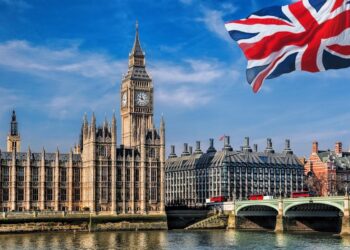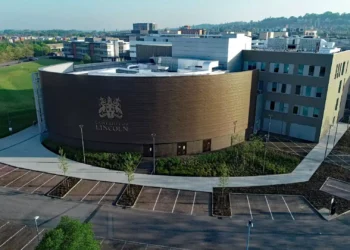The British High Commissioner to Nigeria, Richard Montgomery, has explained that the strain on the country’s housing infrastructure, plus the need to manage the influx of migrants is the reason for the ban on students bringing dependents.
He made these remarks during a closed-door meeting with Vice President Kashim Shettima at the Presidential Villa in Abuja. The ban on international students bringing family members with them starts in 2024.
The decision to prohibit international students, including Nigerians, from bringing their families to the UK from January 2024 has received mixed reactions.
Some argue that the regulation will exacerbate labour shortages in critical sectors like healthcare and undermine the country’s reputation as a top destination for global talent.
Reasons behind the ban
The British High Commissioner highlighted the reasons behind the regulation. Montgomery revealed that Nigerian students coming to the UK have increased fivefold in the past three years, accounting for 10 percent of the annual UK visa grants.
He described this as a remarkable success story for UK universities and expressed delight in the growing number of Nigerians choosing the UK for education.
He however explained,
- “The first issue is that it’s not always possible to find suitable housing and services to meet the needs of our current student population.”
- “Last year (2022), for example, the UK granted three million new visas, of which 325,000 were to Nigerians.
- “Nigerian visitors constitute over 10 per cent of the people coming to London and the UK.
- “It’s a fantastic success story for our universities. And we are delighted that so many Nigerians are coming to the UK,” he said.
He also emphasized the need to manage visitor numbers and migration, similar to the approach of any government including the Nigerian government.
He added that the UK was working with Nigerian universities and research institutions to foster collaboration and innovation in areas such as health, agriculture and energy.
“We have a very strong partnership with Nigeria in education and we want to see it grow and flourish.
“We want to see more Nigerians coming to study in our world-class universities and we want to see more British academics and researchers working with their Nigerian counterparts on solving some of the challenges that both countries face,” he said.
During his discussions with the Vice President, Montgomery acknowledged the positive reception of the economic policies implemented by the Bola Tinubu administration.
Overall, the British High Commissioner’s visit to Nigeria was aimed to strengthen bilateral relations and explore opportunities for collaboration between the two countries.
The discussions covered immigration policies, investment opportunities, and support during economic transitions.

























